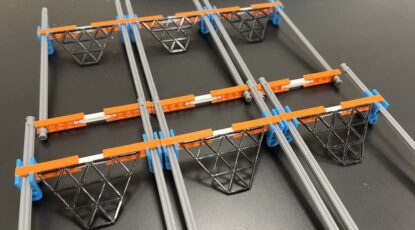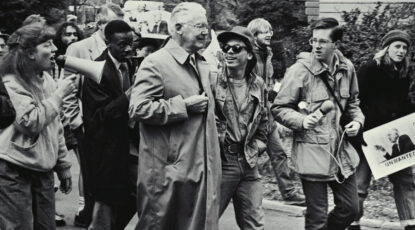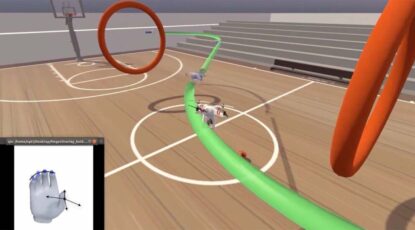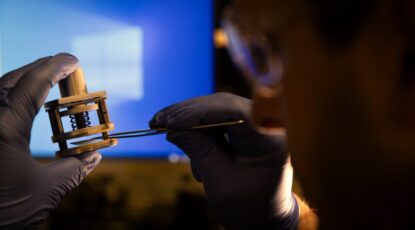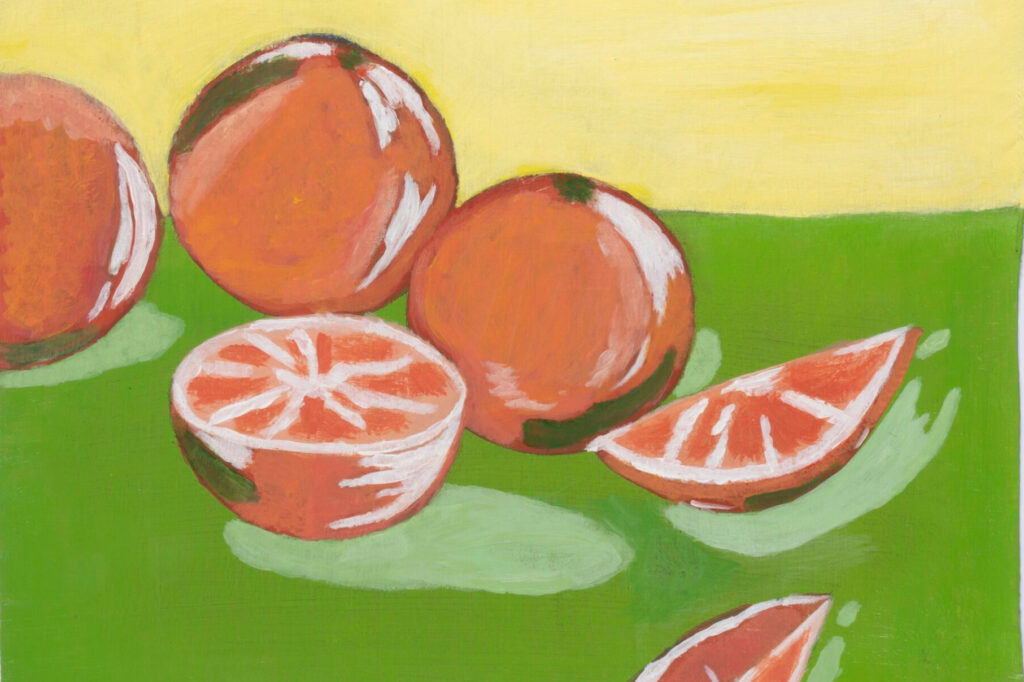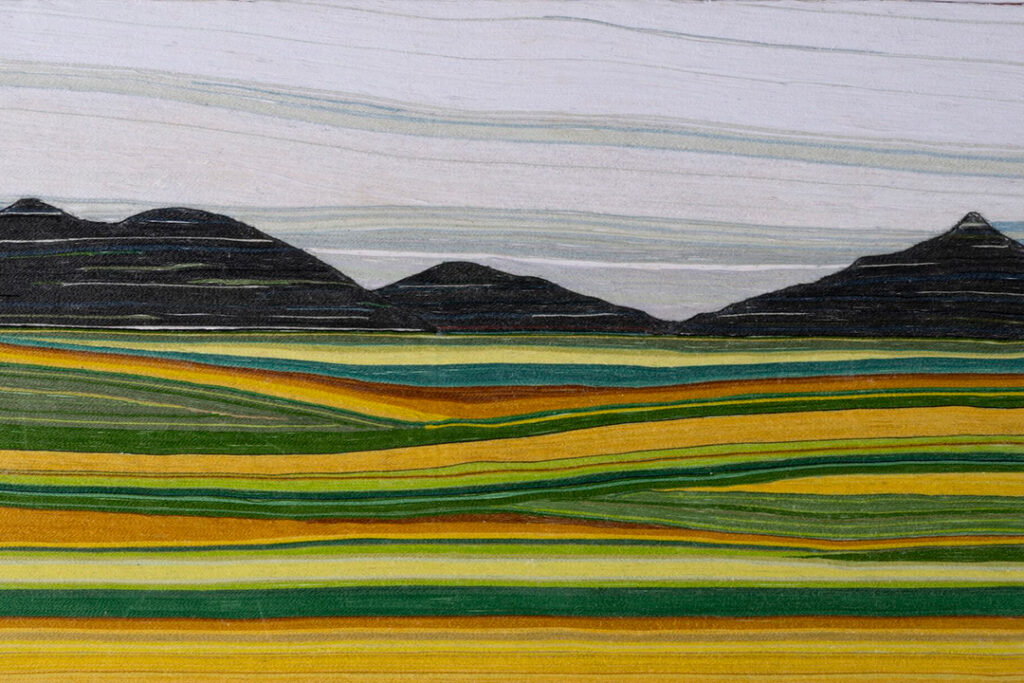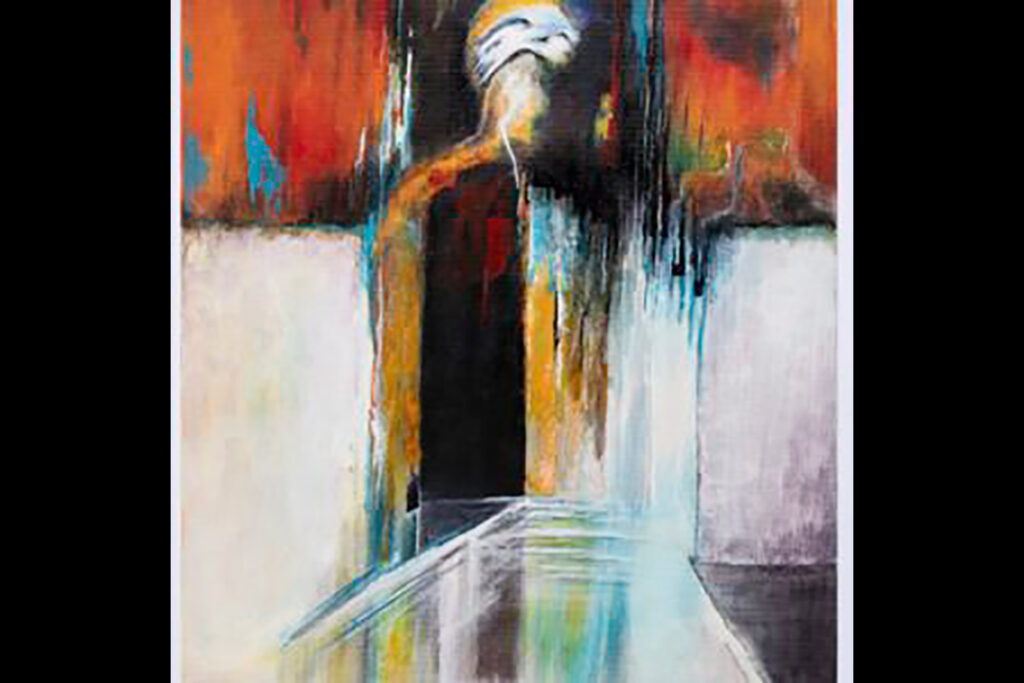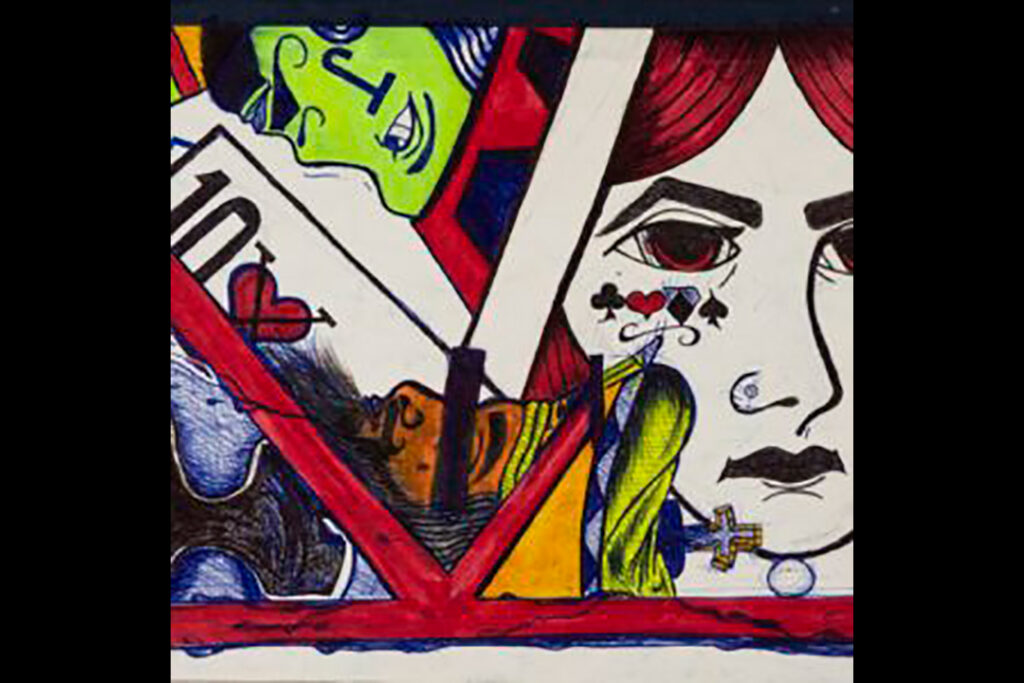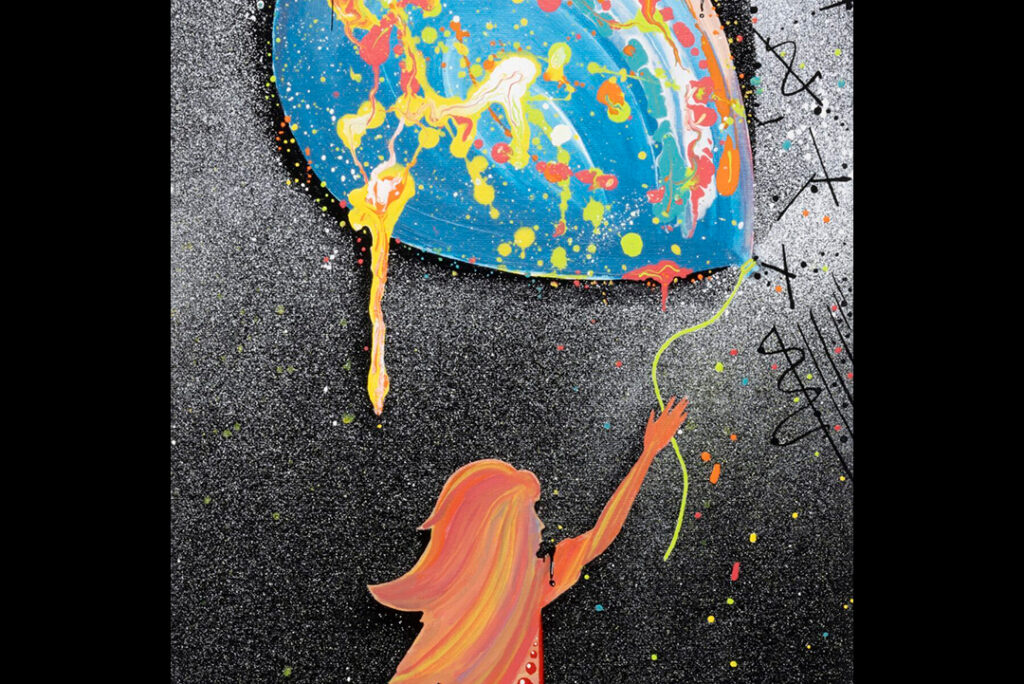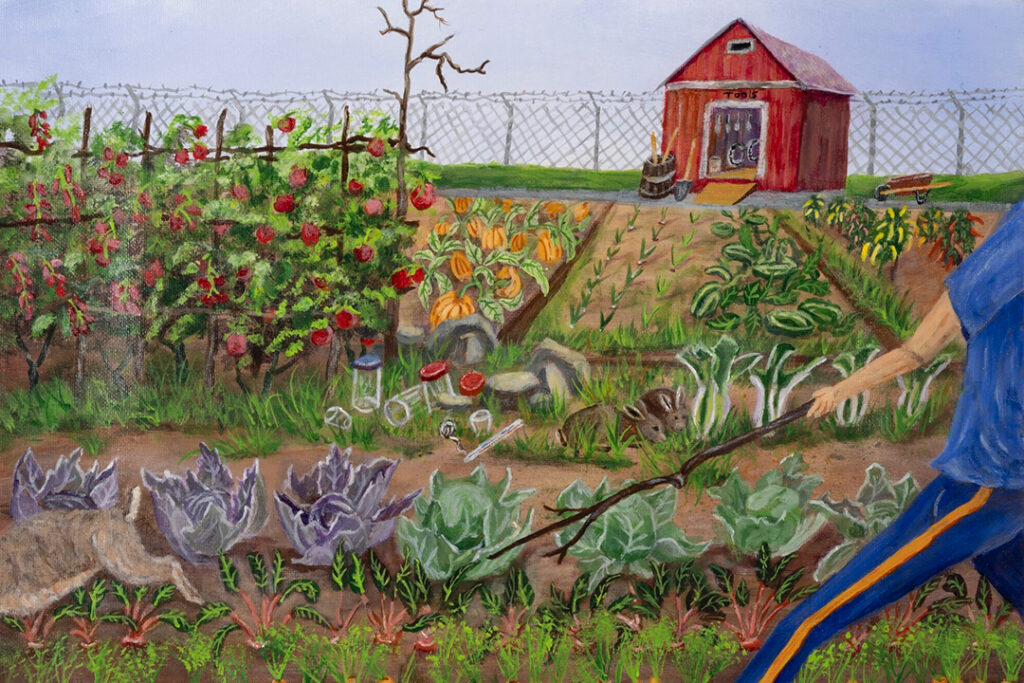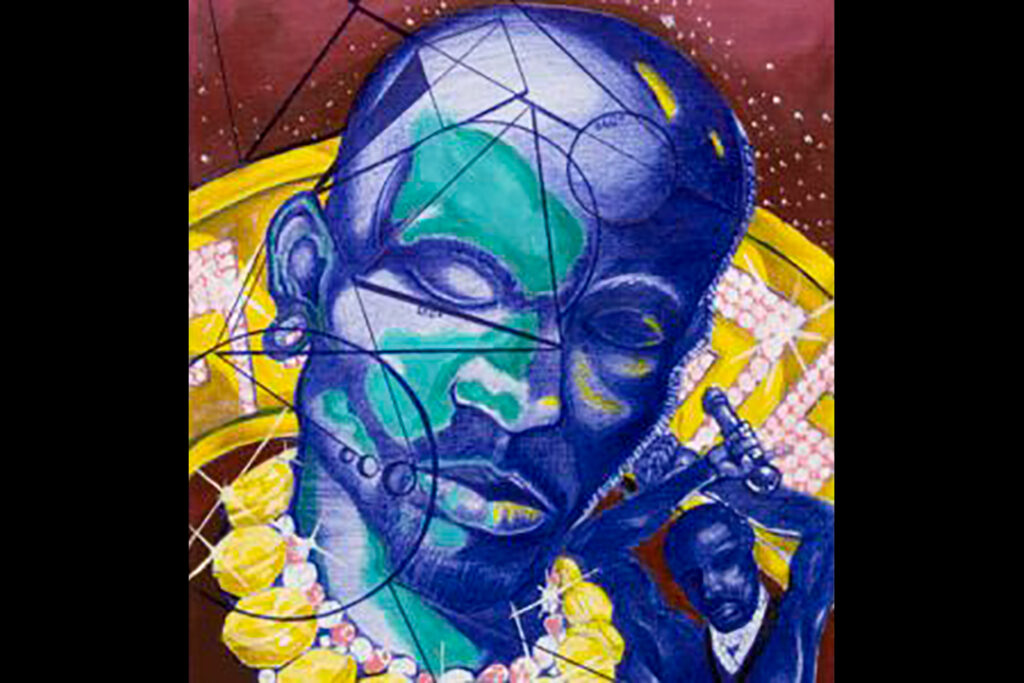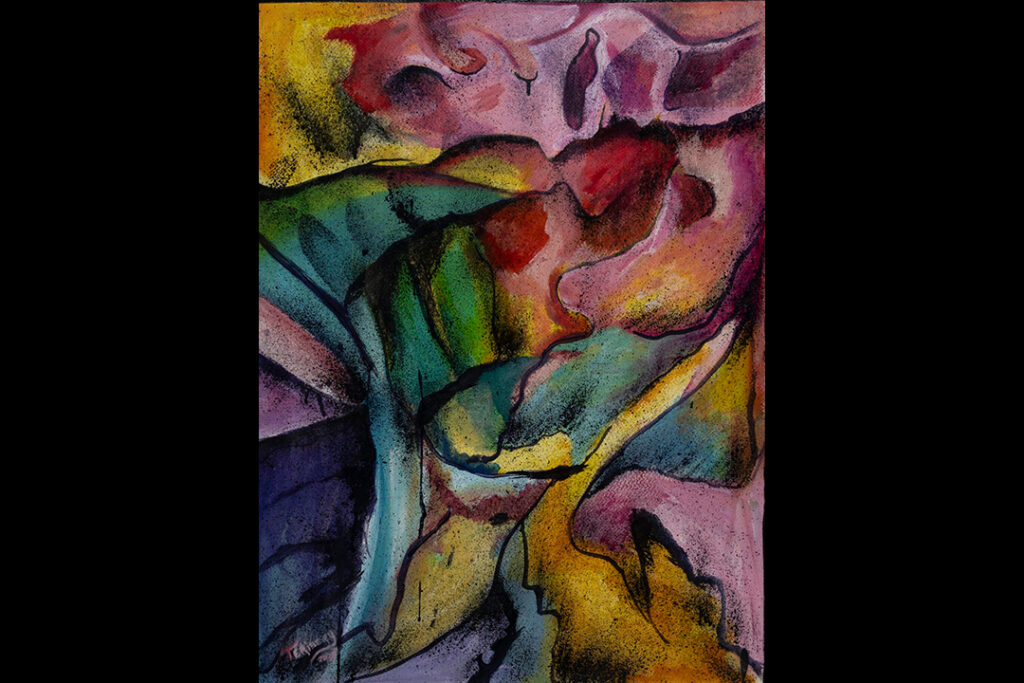Filling a gap: U-M students help combat Michigan’s shortage of rural dentists

Northern Michigan resident Becky Klein was surprised to learn that the dentists at the Thunder Bay Community Health Service clinic were students from the U-M School of Dentistry. They turned out to be just as competent and professional as seasoned practitioners, she said, and excellent communicators.
-
Listen to your mother—especially if your mother is a climate scientist.
Sierra Petersen, associate professor of earth and environmental sciences, studies what Earth’s climate was like millions of years in the past. She also is a member of Science Moms, a group of mothers who are scientists who study climate change. They hope to make climate change a normal topic of conversation—and therefore one that deserves action and attention.
-
Not so simple machines: Cracking the code for materials that can learn
It’s easy to think that machine learning is a completely digital phenomenon, made possible by computers and algorithms that can mimic brain-like behaviors. But the first machines were analog and now, a small but growing body of research is showing that mechanical systems are capable of learning, too, say physicists at U-M.
-
Who was Robben Fleming?
U-M Regent Philip Power once remarked that Robben Fleming, U-M president from 1968-78, viewed clashes as the engine of progress. Power wasn’t wrong. Fleming’s background in labor law prepared him for the tumultuous decade when student protest and anti-war sentiment captivated the campus.
-
Dental alumni discover they have more than Michigan in common: They are siblings
This brother and sister went through the U-M dental school one year apart but never knew about each other until 30 years later. Today, they enjoy a newly expanded network of relatives, friends, and of course, Michigan alumni.
-
‘Unprecedented’ level of control allows person without use of limbs to operate virtual quadcopter
A brain-computer interface, surgically placed in a research participant with paralysis in all four limbs, provided him an unprecedented level of control over a virtual quadcopter — just by thinking about moving his unresponsive fingers. Such groundbreaking technology could impact one’s ability to socialize, work, and enjoy recreational activities.
-
New water purification technology helps turn seawater into drinking water without tons of chemicals
Cutting acid and base treatments from conventional desalination plants could save billions of dollars globally, making seawater a more affordable option for drinking water, say experts at U-M. A study describing the new technology has been published in Nature Water by engineers at Michigan and Rice University.
Columns
-
President's Message
Reaffirming our focus on student access and opportunity
U-M seeks to ensure every student will rise, achieve, and fulfill their dreams. -
Editor's Blog
Peace out
It's a mad, mad, mad, mad world out there. -
Climate Blue
Keeping our focus on climate
As federal support for climate science wanes, Ricky Rood remains hopeful. -
Health Yourself
Are you an ‘ager’ or a ‘youther’?
Why do some people appear younger or older than people born in the same year?
Listen & Subscribe
-
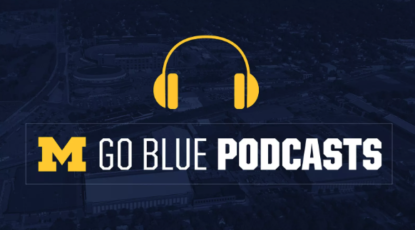
MGo Blue podcasts
Explore the Michigan Athletics series "In the Trenches," "On the Block," and "Conqu'ring Heroes." -
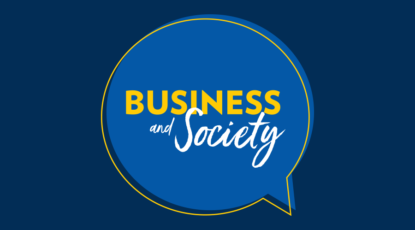
Michigan Ross Podcasts
Check out the series "Business and Society," "Business Beyond Usual," "Working for the Weekend," and "Down to Business." -
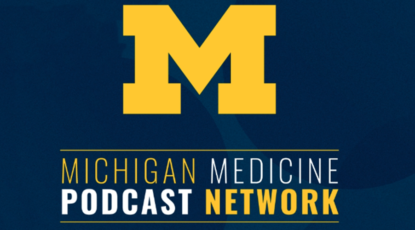
Michigan Medicine Podcasts
Hear audio series, news, and stories about the future of health care.
In the news
Creativity and connection across prison walls
One of the world’s largest and longest-running exhibitions of incarcerated artists is back with new programming designed to foster connection and deepen public understanding of incarceration in Michigan. The 29th annual Exhibition of Artists in Michigan Prisons, curated by U-M’s Prison Creative Arts Project, showcases 772 artworks by 538 artists incarcerated in 26 state prisons. The Duderstadt Center Gallery on U-M’s North Campus is presenting the artwork through April 1.


